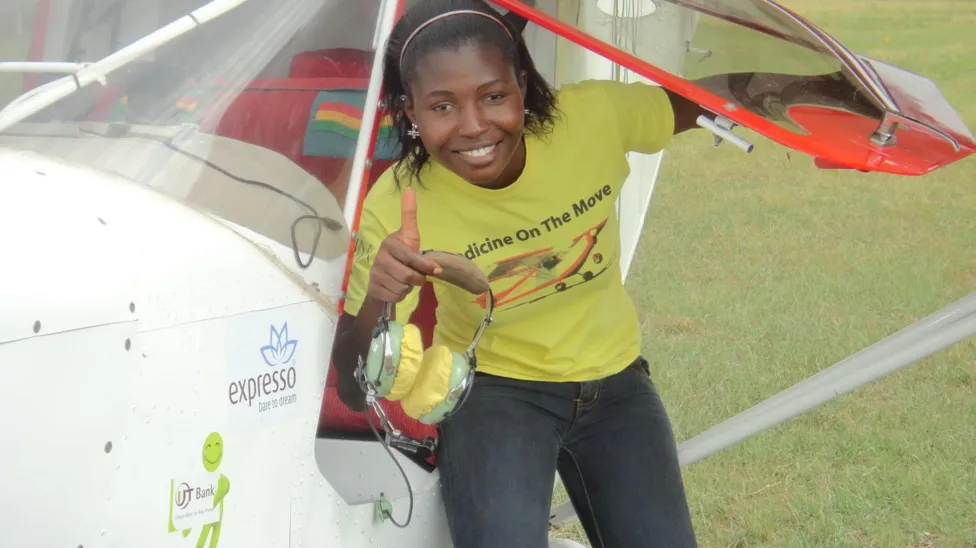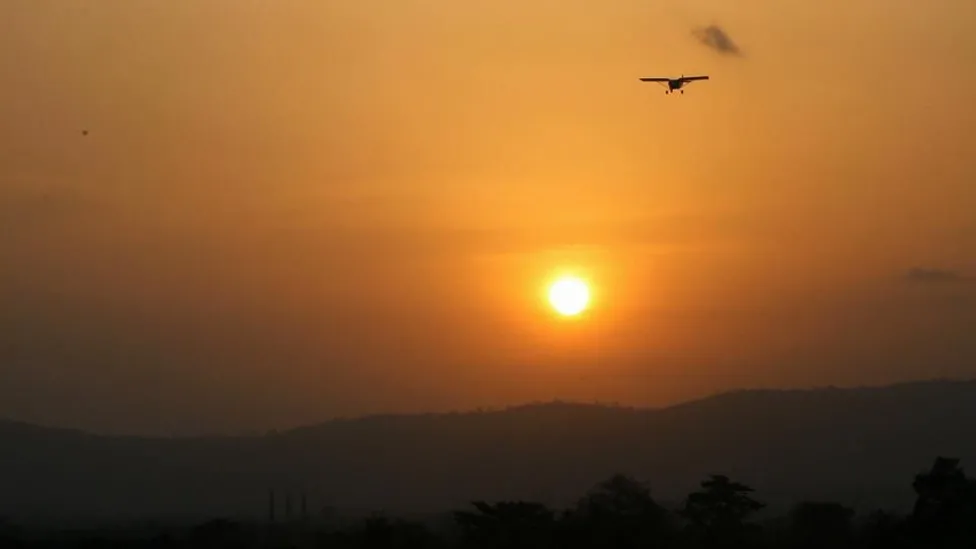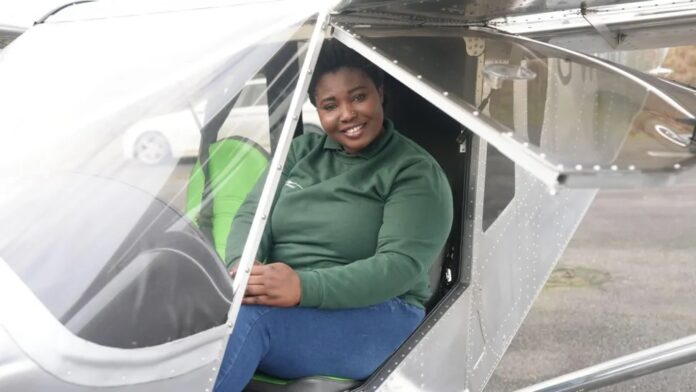|
Getting your Trinity Audio player ready...
|
She grew up without running water and electricity in Ghana.
Now Patricia Mawuli-Porter is a pilot, who builds and services planes for a living in Pembrokeshire and was awarded an OBE for services to aviation.
It is a far cry from her upbringing where she was almost sacrificed by relatives when she was a toddler because she was considered bad luck.
She fought to go to school, but was told she could not continue into further education because she was a woman.
The start of Patricia’s life is vastly different to the hangar in Haverfordwest which she runs her business from now.
Her father died when she was very young and her mother left shortly after.
‘’In parts of Africa, when a family isn’t doing well and there is a lot of troubles, there is still belief in superstition,” she said.
‘’I was sent off to be killed because I was seen as bringing bad luck to the family when things weren’t going according to plan.’’
She avoided this fate by wandering away and being lost for three days before being found and brought up by her grandmother.

Her life changed when she saw a plane flying overhead while collecting firewood to sell.
She said: “I ran out of money. So I said to myself I’m going to go into the forest and I’m going to cut down some trees which I shouldn’t be doing, but it was the quickest way for me to make some money.
“So, whilst I was in the bush cutting trees. I saw a small aeroplane flying overhead. I tell you what – that changed my life from that moment.”
Patricia said after being scared of the aeroplane initially, as they were rare to see over her village, she decided to follow it and see where it came from.
“I walked on to a small airfield… I saw a small aeroplane sat on the runway.
“I asked for a job. And well, the answer was very simple – go away. There was no place for women in that industry I was told.”
Determined to make an impression, she offered to work free at the Kpong Airfield.
“Now that changed their perception,” she said.
Eventually she was hired as an apprentice and went on to train as an engineer.
She became the first female civilian pilot in Ghana and the first woman worldwide to undertake Rotax aircraft engine training.
Patricia founded an academy with her husband Jonathan to teach children about aviation and engineering, particularly focusing on the education of girls and children from rural backgrounds.

Following their move to the UK in 2015 and birth of daughter Gwen the year after, Patricia and Jonathan set up their company Metal Seagulls based in Haverfordwest Airport where they specialise in building, maintaining and operating light aircraft.
“Running a business is one thing, but running a business where you are wanted, where people want you, it’s another,” she said.
“[In] Pembrokeshire we have found to be [a] place where you are made welcome. Welsh people are just amazing people.
“Since we moved, we haven’t looked back.”
The company has hired two young female staff members to join the team and help begin their careers in engineering and aviation.
Patricia was recently made a professor by University of South Wales Trinity St David, and wants her achievements in aviation to inspire others – particularly young women.
Statistics show aviation remains a male-dominated industry. In 2021, just 5.8% of commercial pilots were women, according to the International Society of Women Airline Pilots.
“A lot of people ask me is it really hard being in this industry as a woman and a woman of colour, and I say to people I’m proudly black and I’m even prouder being a woman”, she said.
“I often say to people, yes, there are barriers. Yes, there is adversity in life, but me personally, this adversity or the barriers – it’s something to break.
“It means people behind me get it a bit easier. And that’s always the success for me – hard work, determination and breaking the barrier, then paving the way.”
Source: BBC





